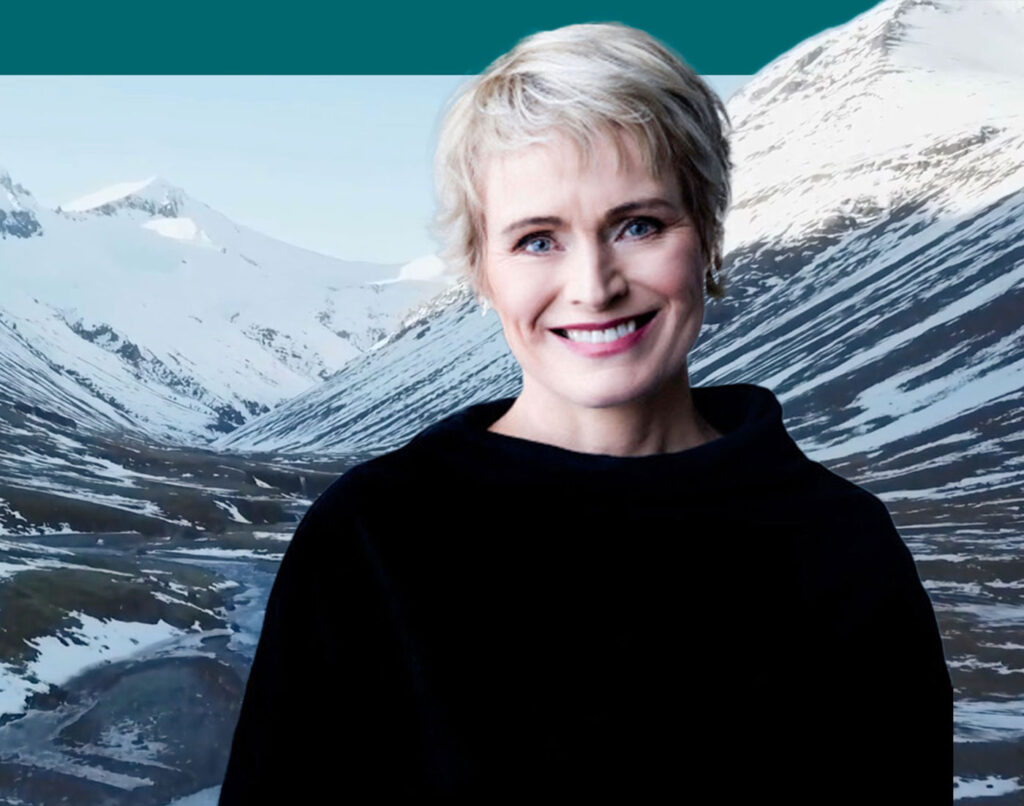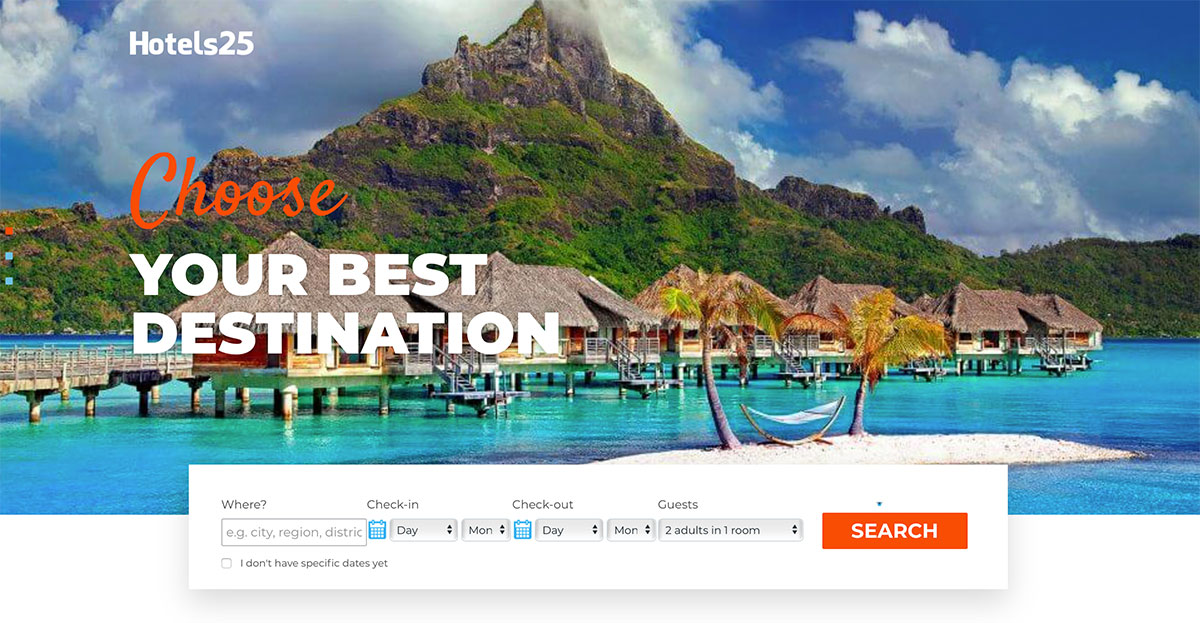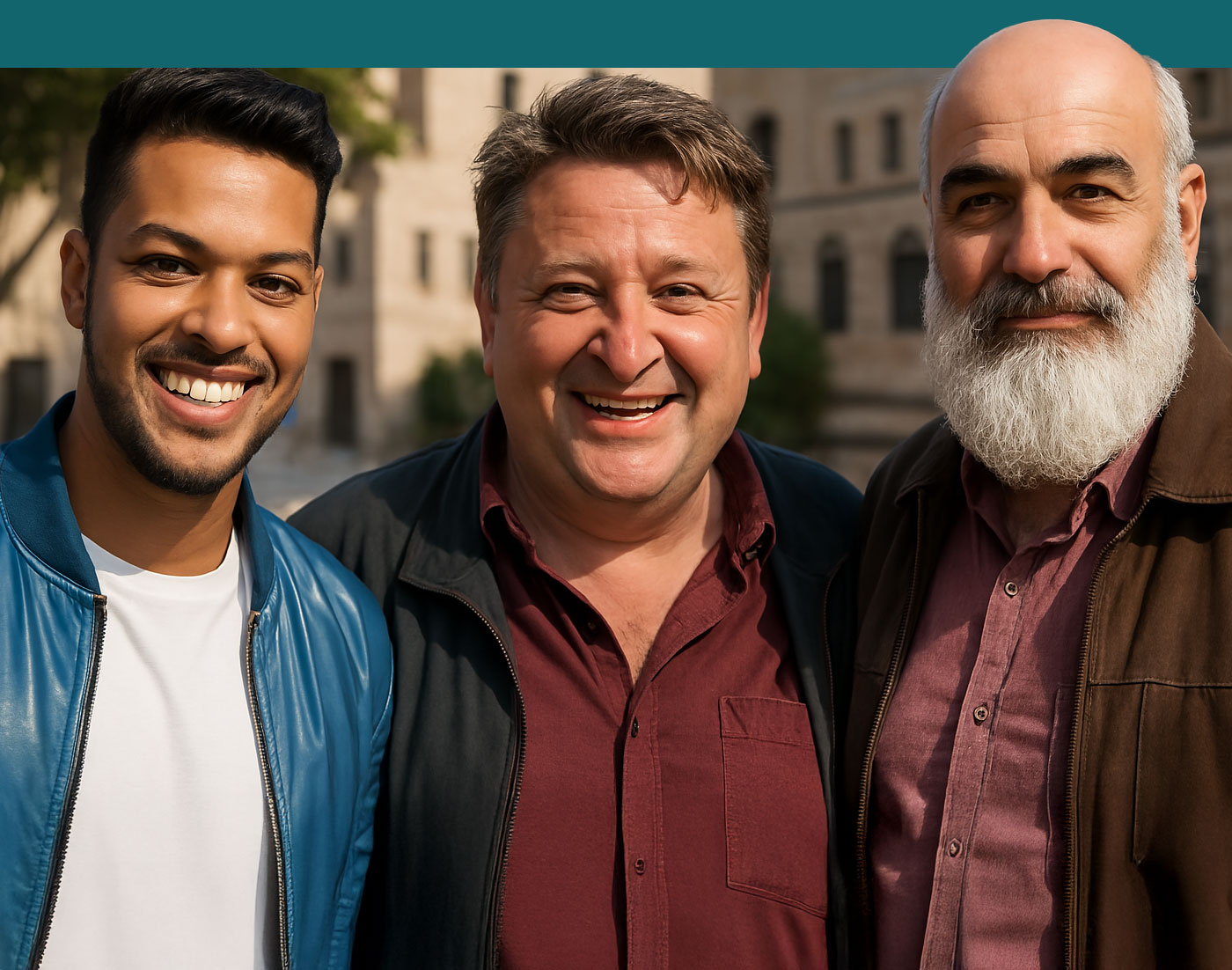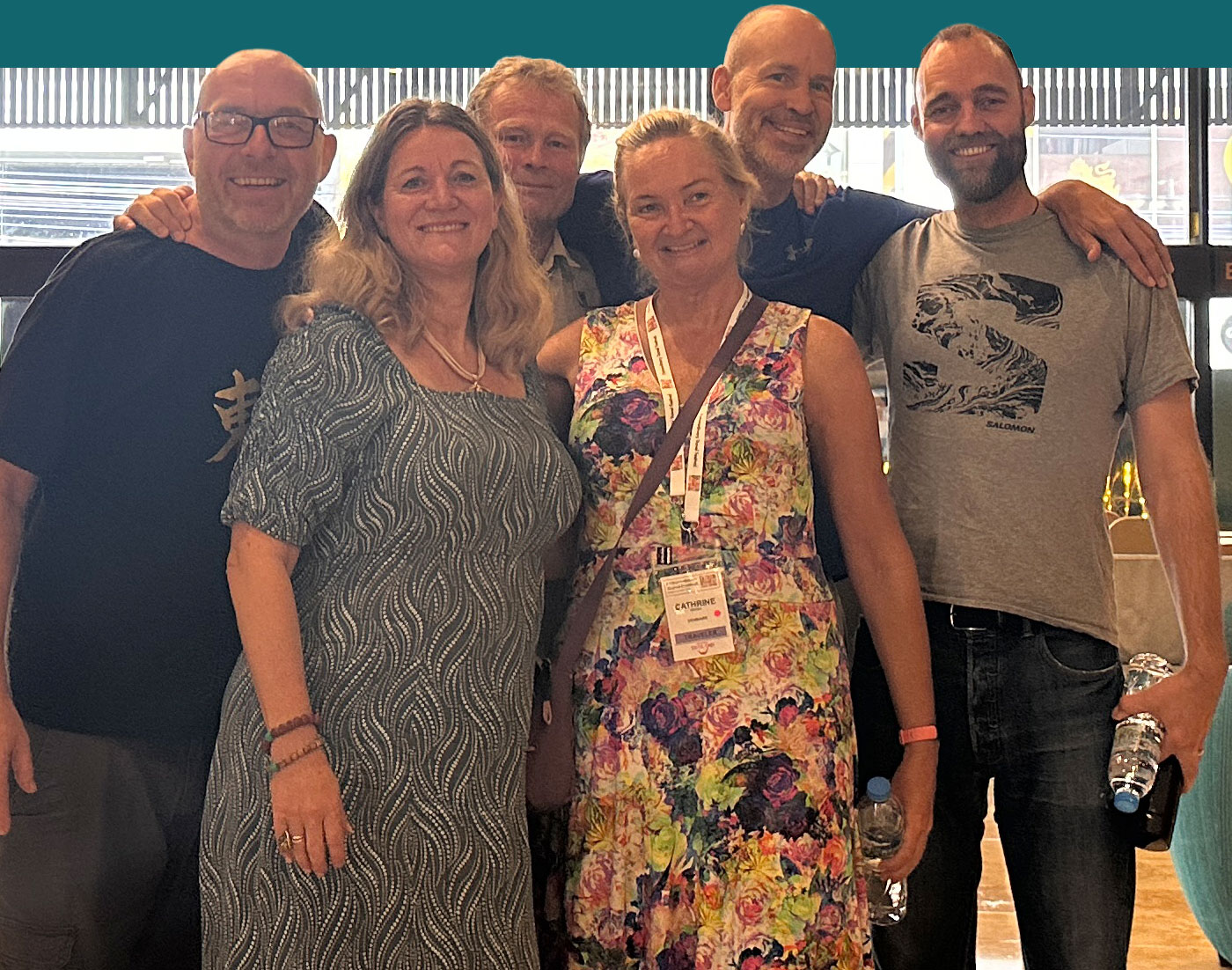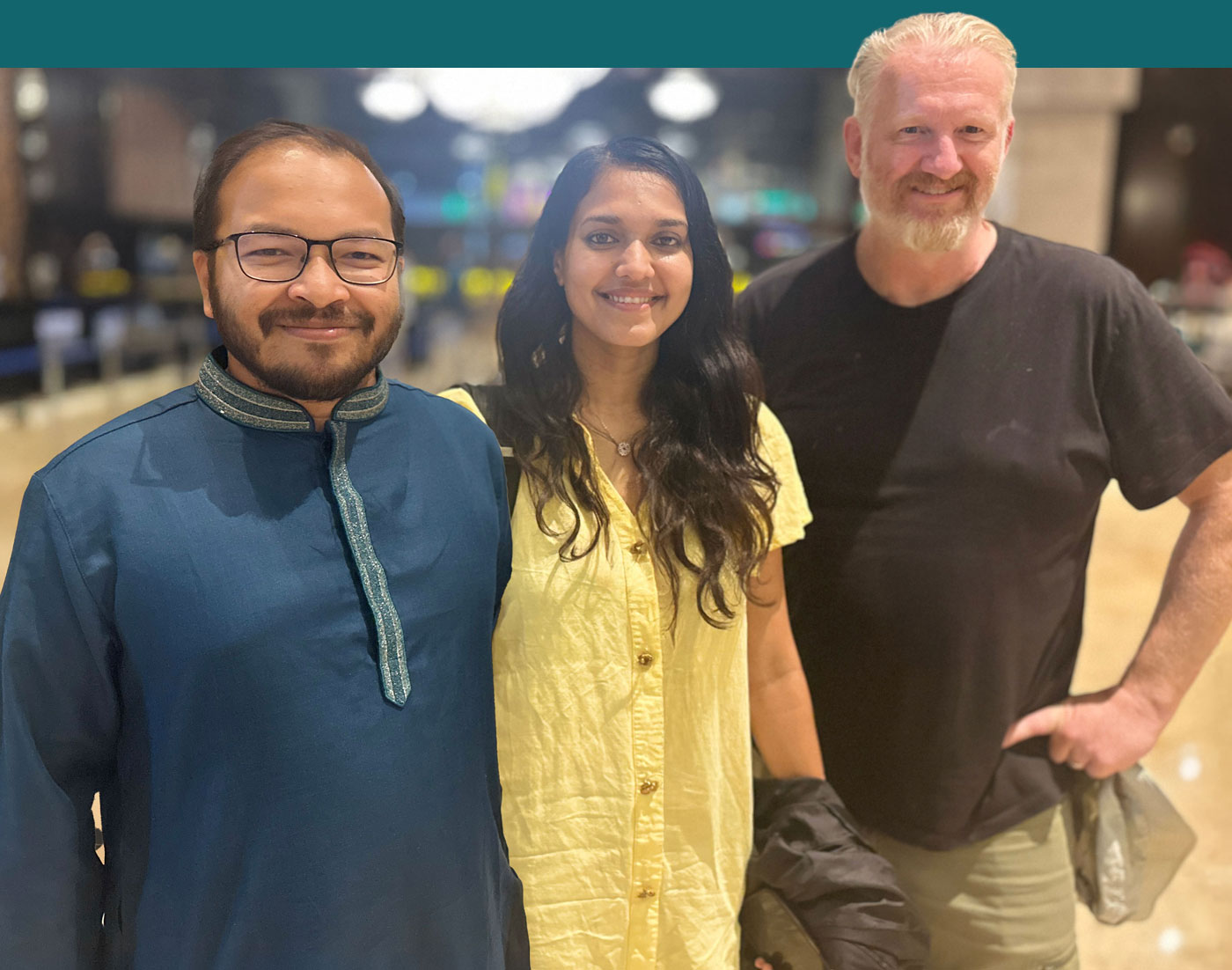Iceland and Eurovision:
A Love Story (Sort Of)
Iceland and the Eurovision Song Contest go together like peanut butter and jelly – if the peanut butter was a volcanic island and the jelly involved glitter, wind machines, and bizarre key changes.
For my American listeners, Eurovision is like the musical Olympics for European countries (and, for some reason, Australia). Each year, nations send over-the-top performances featuring sparkly outfits, Viking helmets, and dramatic power ballads. Iceland, despite its tiny population of 370,000, treats it like the Super Bowl. Every year, the country hopes to finally bring the Eurovision trophy home. So far, they’ve come close – but never won.
I had heard that Icelanders go crazy for Eurovision, so while in Reykjavík, I asked Helga and Asbjørn if the obsession was real. Turns out, not so much in their household.
“Is it tomorrow night? I didn’t even know,” Asbjørn admitted. “Sorry. I know nothing about that. Really?”
So, maybe not every Icelander is glued to their screens for the competition.
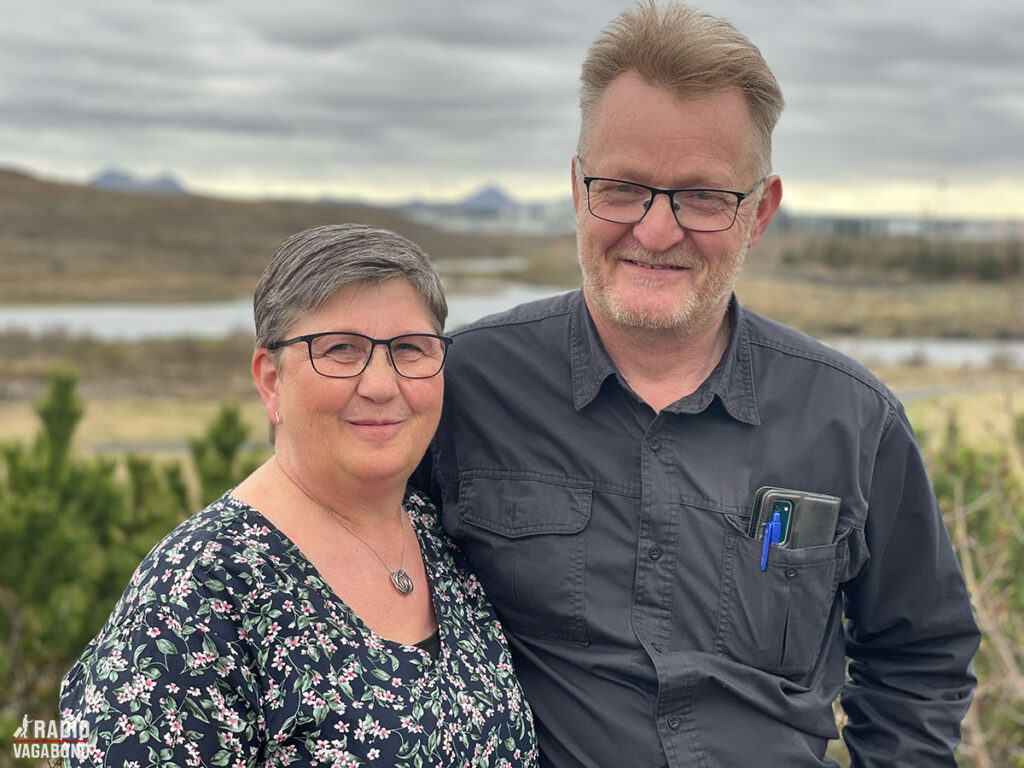
Throwing My Daughter Under the Bus
I had assumed Eurovision was happening that very weekend – because my daughter told me so. But when I asked Icelandic author Alda Sigmundsdóttir, she quickly corrected me.
“Eurovision is not tonight. It’s next week.”
Oops. Naturally, I had to deflect.
“Oh, my daughter told me…” I laughed.
Alda laughed but confirmed that, yes, Icelanders do go all in for Eurovision.

Iceland and “The Story of Fire Saga”
If you’ve seen the Netflix movie “Eurovision Song Contest: The Story of Fire Saga”, you’ll know just how deep Iceland’s Eurovision passion runs. Will Ferrell and Rachel McAdams brought Iceland’s quirky love for the contest to life with hilarious accuracy – though, as expected, some parts were exaggerated.
I asked Alda how she felt about the movie. At first, she wasn’t thrilled about the idea.
“I tend to get really annoyed about how Icelanders’ elf beliefs are portrayed in foreign media,” she said. “Somehow, they picked it up and ran with this thing that we’re all really kooky and we don’t do anything unless we speak to the elves first. It’s been misconstrued.”
Since she expected the film to mock Iceland, she originally planned to avoid it.
“I thought, I’m never going to watch that movie.”
But then, one night, it was on TV.
“The funny thing was, I watched the whole thing – and I thought it was hilarious. It wasn’t the kind of ‘look at these weird Icelanders’ thing I expected. A lot of it was just really funny. So, I liked it.”
Turns out, even sceptics can be won over.
Icelanders’ Take on the Movie
After Alda’s surprising approval, I turned back to Helga and Asbjørn. Had they seen it?
“No.”
“Come on!!!” I protested.
“Well, I know the song,” Helga said.
At least that was something.
I explained the premise: Icelandic musicians competing in Eurovision, with Will Ferrell playing the lead singer and a Swedish actress in the female lead.
“So… no Icelanders in it?” Helga asked.
Nope. Not in the lead roles.
“Either you like it a lot, or you don’t,” she said.
Maybe that’s why they hadn’t watched it.
WHO ARE YOU?
Please spend five minutes taking a the survey – tell me a bit about who you are and what you would like more or less on here on The Radio Vagabond.
Iceland’s Football Phenomenon
While Eurovision may divide Icelanders, football (soccer, for my American listeners) unites them.
Just a few years ago, Iceland had a phenomenal national team – a Cinderella story that captured global attention. In 2018, Iceland became the smallest country ever to qualify for the FIFA World Cup.
Even crazier? When Iceland played in Russia, nearly 30,000 Icelanders travelled to watch the matches in person – that’s almost 10% of the entire country!
“Imagine if 33 million Americans left the country at once just to watch a game,” I said.
Iceland’s fans were unforgettable, bringing the legendary “HÚH!” Viking Thunderclap to the world stage.
It starts with a slow clap – deliberate, building tension. Then, a booming collective ‘HÚH!’ that echoes like a primal battle cry. It’s a moment of pure, unshakable Icelandic pride.
Their first match was against Argentina, with Messi on the field. Against all odds, Iceland held them to a 1-1 draw, thanks to an incredible penalty save by goalkeeper Hannes Halldórsson. And here’s a fun fact: at the time, he played for my hometown club in Denmark!
I asked Helga and Asbjørn if they had been caught up in the excitement.
“We were in Norway at that time,” Helga said.
So, no. Not really.
At least they remembered the Messi penalty save.
“Messi was really angry,” Helga said.
Yes, he was.
What Icelanders Really Think About Tourists
Iceland has become a tourism hotspot in recent years. With its stunning landscapes, glaciers, volcanoes, and unique culture, millions of people visit the country every year. But how do Icelanders really feel about all these visitors?
I put the question to Alda Sigmundsdóttir:
“To be honest, Alda… what’s the true story? What do you think of us tourists?”
She paused for a moment before answering.
“Well, it’s complicated,” she admitted. “On the one hand, tourism has done a lot of good things for Iceland. It’s a big part of our economy now. But on the other hand, there are challenges.”
One of the biggest issues is overtourism.
“It all happened so fast. Before 2010, we had maybe 500,000 tourists a year. Then suddenly, we had over two million.”
For a small country with a tiny population, that’s a massive change.
“Imagine a place with 370,000 people suddenly getting millions of visitors. Our infrastructure wasn’t built for that,” she said.
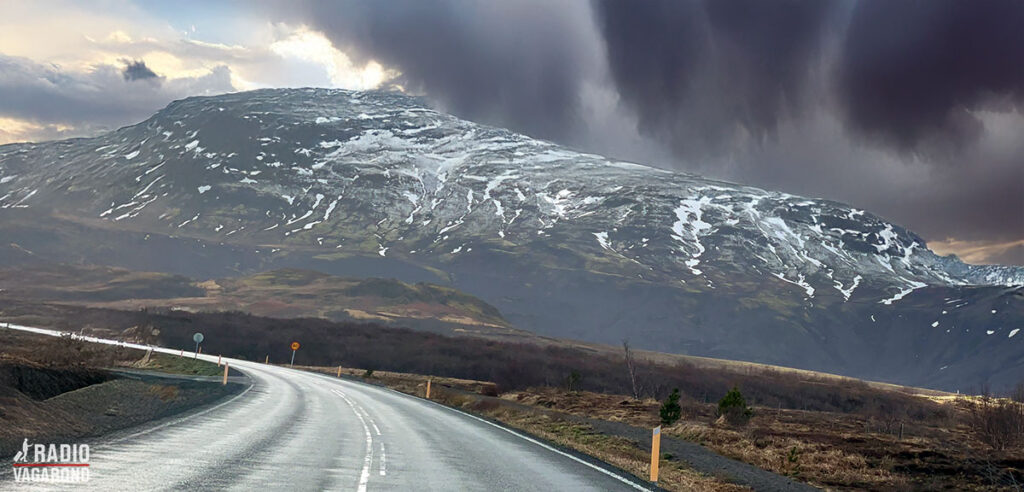
The Problem with Tourists Behaving Badly
While most tourists are respectful and responsible, some are not.
“We have seen some crazy behaviour,” Alda said.
“Tourists stopping their cars in the middle of the road to take a picture. People trying to climb on icebergs. Some have even tried to walk on our lava fields before the ground is stable.”
Then there’s the issue of toilet habits.
“For some reason, some tourists think it’s okay to just… go in nature,” she said, shaking her head. “I don’t understand it. There are bathrooms. Use them!”
But despite these annoyances, Alda insists that most Icelanders don’t hate tourists – they just wish visitors would be more mindful of the environment and the culture.
“Iceland is a beautiful but fragile place,” she said. “We love sharing it with people. We just want them to treat it with care.”
So, as Iceland’s popularity as a travel destination grows, locals have one main request for visitors: be respectful.
“We love having guests. But we also want them to respect our country.”
That means not leaving garbage behind, staying on marked paths when exploring nature, and understanding that Iceland’s delicate environment needs to be preserved.
“We don’t have that much vegetation, and the moss takes forever to grow back. So when people step on it, they don’t realize how much damage they’re doing.”
This ties into a larger issue with overtourism – people not following the rules when exploring Iceland’s raw and untouched landscapes.
“If you see a sign that says ‘Don’t go here,’ there’s a reason,” she said.
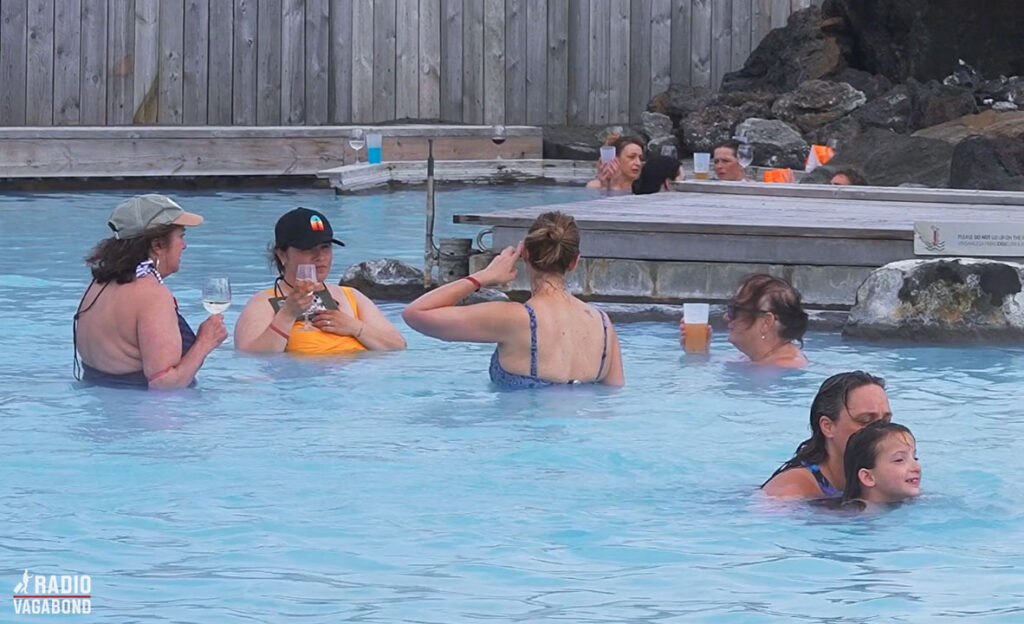
Showering Naked:
A Rule, Not a Suggestion
One thing that surprises many visitors is Iceland’s strict public swimming pool etiquette – you must shower naked before entering the pool. Alda explains:
“This is non-negotiable. We have to keep the pools clean, and that means washing properly beforehand.”
Some tourists, particularly those not used to communal showers, try to get away with keeping their swimsuits on. But that’s when they meet the ‘shower police’ – local Icelanders who are not afraid to enforce the rules. Alda laughed:
“If someone sees you not showering properly, they will tell you, Icelanders don’t hold back when it comes to this.”
So, if you’re visiting an Icelandic pool, be prepared to embrace the local way.
The Icelandic Language:
A Linguistic Time Capsule
The Icelandic language is unique – not only because of how it sounds, but also because it has remained almost unchanged for centuries. It’s like stepping back in time. A modern Icelander can still read the old sagas from the Viking era.”
While some languages evolve rapidly, Icelanders work hard to preserve their language by avoiding borrowed words from other languages. Instead, they create their own Icelandic versions of modern terms.
For example, we don’t say ‘computer’ – we say ‘tölva,’ which is an old Icelandic word meaning ‘number prophet’. It’s a fascinating glimpse into how Iceland keeps its cultural heritage alive through language.
Christmas in Iceland:
More Than Just One Santa
Christmas is a huge deal in Iceland, but instead of one Santa Claus, they have 13 Yule Lads. They’re not like your typical Santa. They’re more like mischievous trolls. Each Yule Lad arrives one by one in the 13 days leading up to Christmas, leaving small gifts (or potatoes, if the child has been naughty).
“It’s a very Icelandic thing,” she laughed. “It’s festive, but also a little weird.”
The Christmas season in Iceland is a time of traditions, warmth, and long celebrations – a perfect contrast to the dark winter months.
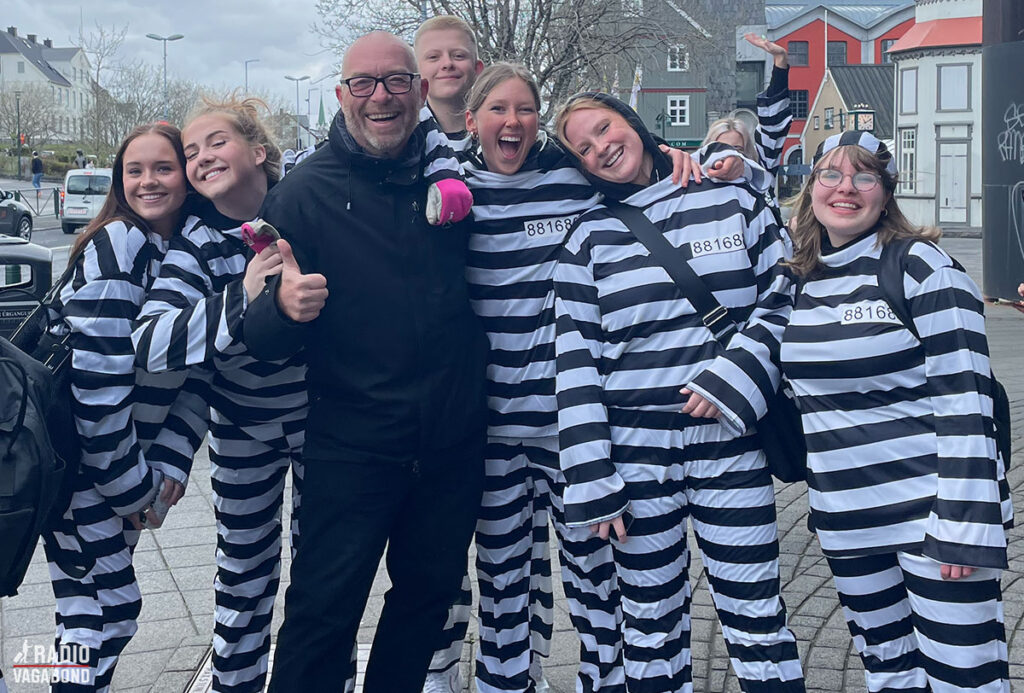
The Students in the Street
During my time in Reykjavík, I encountered a group of students celebrating their graduation. They were loud, happy, and full of energy, marking the occasion in a very Icelandic way.
At one point, they even asked me to twerk with them which, as much as I wanted to help them celebrate, I had to politely decline. So, instead I gave one of them a piggyback ride.
It was a fun and unexpected moment that captured the lighthearted spirit of Icelandic youth.
Hidden Gems and What to See in Iceland
Before wrapping up, I asked Alda for her personal recommendations – the hidden gems visitors should explore beyond the usual tourist attractions. And she wouldn’t tell me. Then they wouldn’t be hidden anymore. But she did share some lesser-known places that offer stunning landscapes, rich history, and fewer crowds.
“There’s so much more to Iceland than just the Golden Circle.”
Have a listen to the episode to hear those recommendations – perfect for travelers who want to experience Iceland beyond the usual tourist trail.
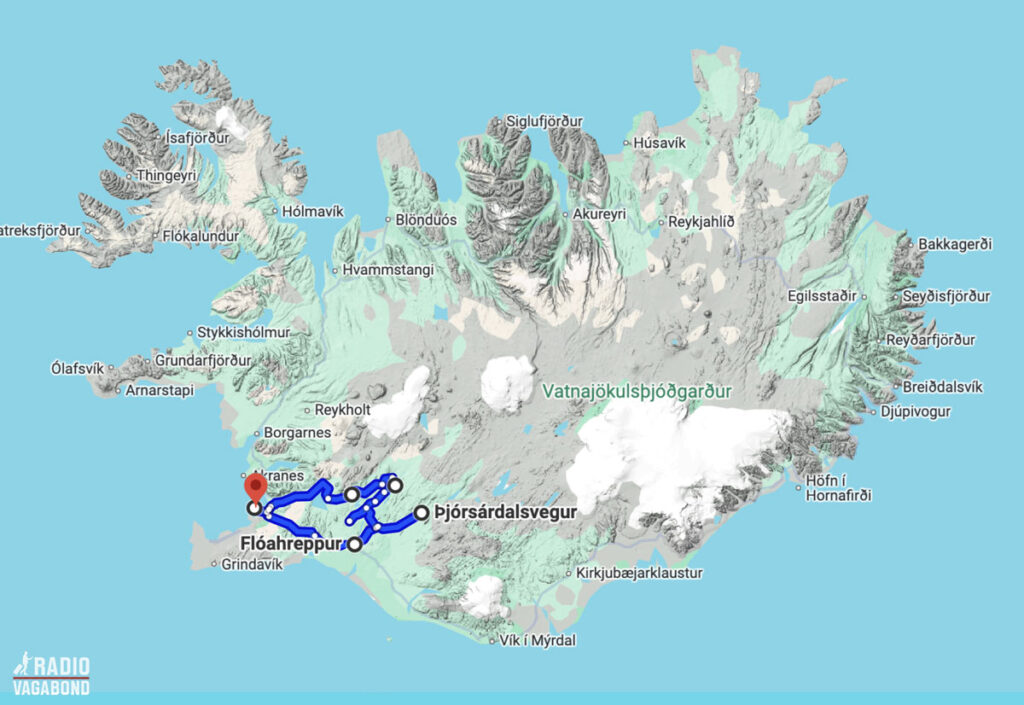
Next Week:
A Conversation with Nomadic Matt
Next week on The Radio Vagabond, I’ll be joined by Matt Kepnes, also known as Nomadic Matt.
He’s a New York Times bestselling author and one of the world’s most famous budget travelers. His book How to Travel the World on $50 a Day has helped thousands of people travel smarter and cheaper.
Now, he’s releasing an updated version: How to Travel the World on $75 a Day – and we’ll be talking about how budget travel has changed in recent years.
Is it still possible to travel affordably – even here in Iceland? What are the best tips for saving money on the road?
We’ll cover all of that and more in the next episode.
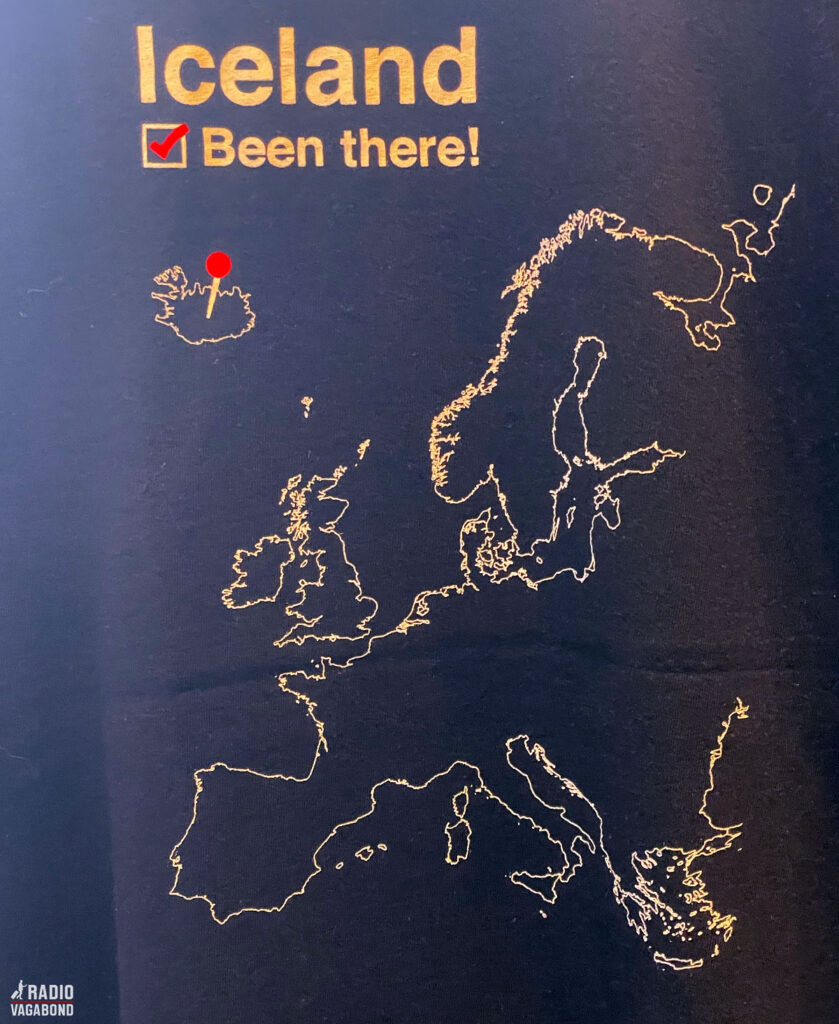
So, make sure to subscribe to The Radio Vagabond so you don’t miss it!
My name is Palle Bo, and I gotta keep moving. See you.
I WOULD LIKE TO HEAR FROM YOU!
Please tell me where are you and what are you doing as you listen to this episode? You can either send me an email on listener@theradiovagabond.com, go to TheRadioVagabond.com/Contact or send me a voice message by clicking on the banner.
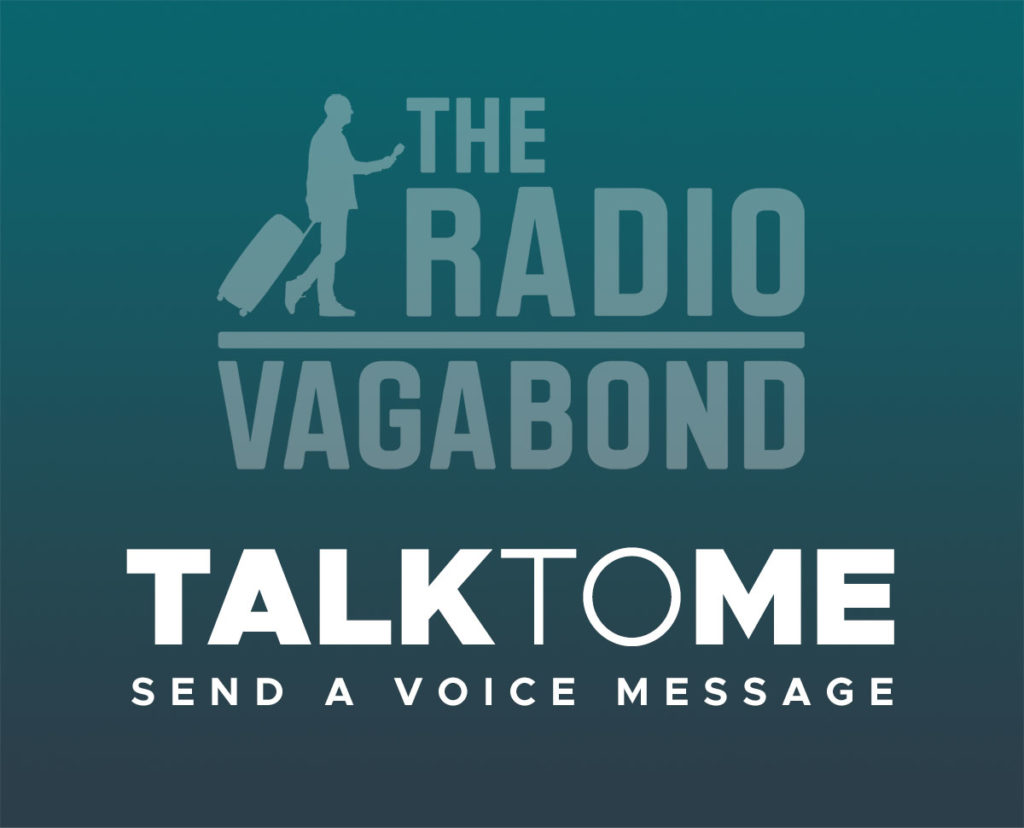
Either way, I would love to hear from you. It’s so nice to know who’s on the other end of this.
SPONSOR
A special thank you to my sponsor, Hotels25.com, who always provide me with the best, most affordable accommodation wherever I am in the world.
Hotels25 scans for prices on the biggest and best travel sites (like Booking.com, Hotels.com, Agoda and Expedia) in seconds. It finds deals from across the web and put them in one place. Then you just compare your options for the same hotel, apartment, hostel or home and choose where you book.
When you book with Hotels25, you get access to 5,000,000 hotel deals. And it’s “best price guaranteed.”
PRODUCED BY RADIOGURU
The Radio Vagabond is produced by RadioGuru. Reach out if you need help with your podcast.

